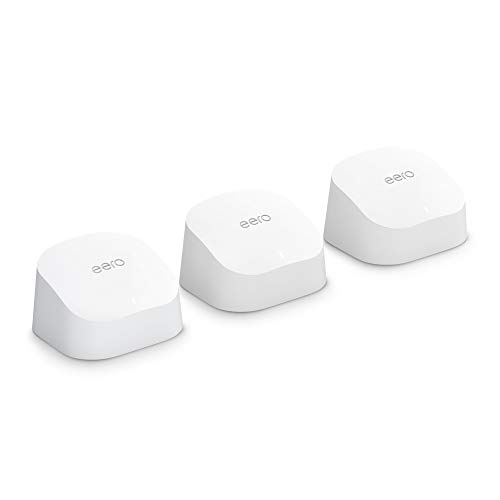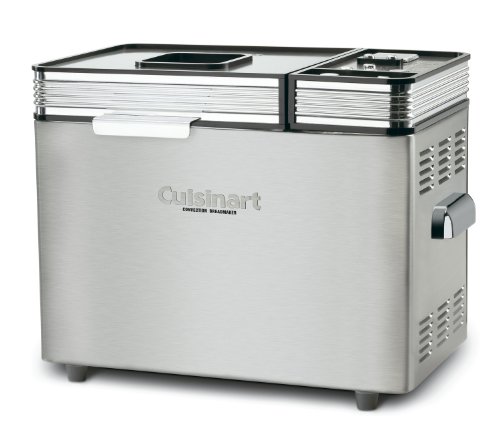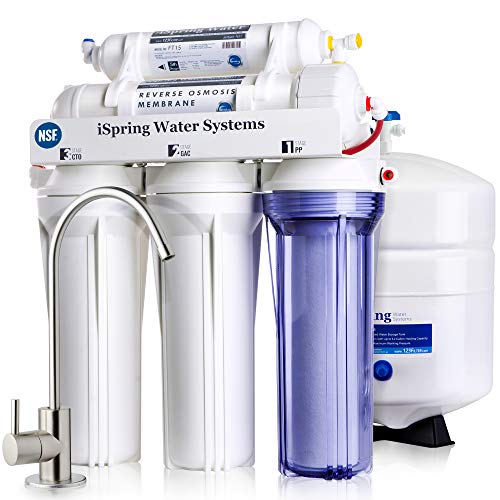Best Home Wifi System
Sally Bennett May 1, 2024 4:55 PM
Top Pick
We're all relying on our home networks to keep us connected throughout the current epidemic, and having the best home Wi-Fi system is more crucial than ever. That means you have a lot to consider if you're in the market for new Wi-Fi. That is the option you must select.
Because we adore smartphones and other internet-connected things, a dependable Wi-Fi connection is as essential as heating or power. Despite this, internet service providers frequently supply their clients with subpar residential Wi-Fi systems with low signal strength and lack functionality. If your home Wi-Fi or cellular reception is unstable and you want to do something about it, the best home Wi-Fi systems on this list will provide your device with the strong signal it requires.
-
Best Home Wi-Fi Systems: Google Wi-Fi system
-
Perfect for Amazon Echo users: Orbi Home Wi-Fi System
-
The most reliable equipment: Linksys Velop Tri-band AC6600 Whole Home Wi-Fi Mesh System
-
Fastest home on the block: Luma Whole Home Wi-Fi System
-
The world's best-reviewed: Eero Home Wi-Fi System
TP-Link Deco Mesh WiFi System(Deco M5) –Up to 5,500 sq. ft. Whole Home Coverage and 100+ Devices,WiFi Router/Extender Replacement, Anitivirus, 3-pack
View on Amazon- SCORE9.2AI Score
H Score is a ranking system developed by our team of experts. It from 0 to 10 are automatically scored by our AI Consumer Report tool based upon the data collected. This score has no relationship or impact from any manufacturer or sales agent websites. Learn more
- BrandTP-Link
- Prime
NETGEAR Orbi RBK753S High-Performance Whole Home Mesh WiFi System 3-Pack Includes 1 Router & 2 Satellites White
View on Amazon- SCORE9.2AI Score
H Score is a ranking system developed by our team of experts. It from 0 to 10 are automatically scored by our AI Consumer Report tool based upon the data collected. This score has no relationship or impact from any manufacturer or sales agent websites. Learn more
- BrandBundled
- SCORE9.2AI Score
H Score is a ranking system developed by our team of experts. It from 0 to 10 are automatically scored by our AI Consumer Report tool based upon the data collected. This score has no relationship or impact from any manufacturer or sales agent websites. Learn more
- Brandeero
- Prime
TP-Link Deco Mesh WiFi System (Deco S4) – Up to 5,500 Sq.ft. Coverage, Replaces WiFi Router and Extender, Gigabit Ports, Works with Alexa, 3-pack
View on Amazon- SCORE9.2AI Score
H Score is a ranking system developed by our team of experts. It from 0 to 10 are automatically scored by our AI Consumer Report tool based upon the data collected. This score has no relationship or impact from any manufacturer or sales agent websites. Learn more
- BrandTP-Link
- Prime
Amazon eero 6 dual-band mesh Wi-Fi 6 system with built-in Zigbee smart home hub (3-pack, one eero 6 router + two eero 6 extenders)
View on Amazon- SCORE9.0AI Score
H Score is a ranking system developed by our team of experts. It from 0 to 10 are automatically scored by our AI Consumer Report tool based upon the data collected. This score has no relationship or impact from any manufacturer or sales agent websites. Learn more
- Brandeero
- Prime
TP-Link Deco Mesh WiFi System(Deco M5) –Up to 5,500 sq. ft. Whole Home Coverage and 100+ Devices,WiFi Router/Extender Replacement, Anitivirus, 3-pack
View on Amazon- SCORE9.2AI Score
H Score is a ranking system developed by our team of experts. It from 0 to 10 are automatically scored by our AI Consumer Report tool based upon the data collected. This score has no relationship or impact from any manufacturer or sales agent websites. Learn more
- BrandTP-Link
- Prime
TP-Link Deco WiFi 6 Mesh System(Deco X20) - Covers up to 5800 Sq.Ft. , Replaces Wireless Routers and Extenders(3-Pack, 6 Ethernet Ports in total, supports Wired Ethernet Backhaul)
View on Amazon- SCORE9.2AI Score
H Score is a ranking system developed by our team of experts. It from 0 to 10 are automatically scored by our AI Consumer Report tool based upon the data collected. This score has no relationship or impact from any manufacturer or sales agent websites. Learn more
- BrandTP-Link
- Prime
TP-Link AX6600 Deco Tri-Band WiFi 6 Mesh System(Deco X90) - Covers up to 6000 Sq.Ft, Replaces Routers and Extenders, AI-Driven and Smart Antennas, 2-Pack
View on Amazon- SCORE9.0AI Score
H Score is a ranking system developed by our team of experts. It from 0 to 10 are automatically scored by our AI Consumer Report tool based upon the data collected. This score has no relationship or impact from any manufacturer or sales agent websites. Learn more
- BrandTP-Link
- Prime
NETGEAR Orbi Tri-band Whole Home Mesh WiFi System with 3Gbps Speed (RBK50) – Router & Extender Replacement Covers Up to 5,000 sq. ft., 2-Pack Includes 1 Router & 1 Satellite White
View on Amazon- SCORE9.0AI Score
H Score is a ranking system developed by our team of experts. It from 0 to 10 are automatically scored by our AI Consumer Report tool based upon the data collected. This score has no relationship or impact from any manufacturer or sales agent websites. Learn more
- BrandNETGEAR
- Prime
- SCORE9.0AI Score
H Score is a ranking system developed by our team of experts. It from 0 to 10 are automatically scored by our AI Consumer Report tool based upon the data collected. This score has no relationship or impact from any manufacturer or sales agent websites. Learn more
- Brandeero
- Prime
Last update on 2024-05-01 / Affiliate links / Images, Product Titles, and Product Highlights from Amazon Product Advertising API
Before you choose a home wifi system service provider, educate yourself about the different types of internet connections and which surfing habits work best for them. You will discover that some types of internet connections are better suited for the activities you enjoy based on your online usage. We have six popular types:
1. Cable
For moderate users who love online surfing, they are streaming movies and music, gaming, and video chatting. Despite widespread availability, the largest providers are Spectrum and Xfinity.

2. Dial-up
Recommended for mild to occasional usages, such as budget-conscious individuals who like leisurely browsing and checking email, social media, and news updates. AOL is the largest provider.

3. DSL
Suitable for moderate users who love streaming, surfing, and gaming. AT&T, Century Link, and Windstream are among the largest providers.

4. Fibre-optic
Recommended for power users who want to stream, game, video chat, and download huge files at the quickest possible rates. Verizon Fios is the major provider.

5. Fixed wifi
Recommended for moderate users who want to stream, browse, and play games. AT&T Fixed Wireless and Rise Broadband are two of the largest providers.

6. Satellite
This option is best for mild to moderate internet users who love streaming music and movies. HughesNet and Viasat, previously Exede, are two of the largest providers.

Because of the ease of mobility, Wi-Fi provides you with versatile alternatives, which means you'll be able to access the internet around your home.
How can you have the best home Wi-Fi system?
To begin, you'll need a router, modem router, or Mesh system, which should be placed in the centre of your selected space so that any WiFi-enabled device within range may join the same network. After you've completed the setup, you'll be able to turn on your WiFi-enabled devices and locate your network in the internet settings. If the network has security, you will be prompted to input the network password on each device that connects to the network. Following that, the device will connect wirelessly without requiring you to re-enter your password each time.
There are several sorts of internet connections accessible in Australia, and it is vital to learn which type you have access to initially. This will therefore aid in selecting the best items for your house or workplace.
We will provide recommendations based on the following factors to assist you in selecting the best home Wi-Fi system.
1. Routers
A router, as the heart of your Wi-Fi, receives an internet signal and then talks with all of your wired or wireless devices to ensure they have enough bandwidth. A standalone router can be used for NBN kinds that do not require a modem (such as FTTP), or it can be coupled with a separate modem for other internet types.
A better router is the first step toward enhanced Wi-Fi coverage. That is the fundamental unit in all of the systems on our list. Some systems will sell you only this single, more powerful router. This is an excellent solution for the studio apartment resident who wants the added benefits of a Wi-Fi system but does not require the expanded coverage area.
More frequently, at least two parts are marketed as a residential Wi-Fi system. These systems not only replace your present router with a more powerful one but also allow you to choose where and how your signal spreads.
2. Modem Routers
A modem router uses two devices to create an all-in-one solution for internet access. Modem routers may be used with many connection types, such as ADSL and NBN VDSL (FTTN), and can provide both wired and Wi-Fi connections for sharing the internet with your devices. Most modem routers may also be used as a router solely, without the modem.
The modem is insufficiently fast. Your internet subscription most likely offers a large number of downstream and upstream channels. More channels simply quicker and more dependable communications. That cable modem most likely contains four to eight downstream channels, compared to the industry norm of 16 in third-party equipment.
3. Features included
You can make an informed decision if you examine a few key factors. To begin, you should look for a router that has at least dual-radio bands, notably 2.4GHz and 5GHz. Why? 2.4GHz, on the other hand, often has a lower frequency and does a better job of getting through walls and other solid constructions. It also handles lightweight operations like web browsing, freeing up the 5GHz spectrum for bandwidth-intensive apps like 4K video streaming on Amazon Prime or Netflix. As a consequence, your Wi-Fi performance is improved and buffer-free.
It should be noted that a dual bandwidth router is just the industry norm. If you have a busy network, such as if everyone in your household owns several devices and you have a variety of smart home gadgets and appliances, you can always choose a router with three radios, also known as a tri-band router. This router typically has two 5GHz bands and one 2.4GHz band. This allows you to allocate heavyweight duties to the two 5GHz radios while freeing up the lower frequency 2.4GHz radio for lighter chores that require a larger coverage area.
4. Your budget
For the most part, a simple home Wi-Fi setup costs less than $200. More premium ones can cost up to $300 but provide more coverage and quicker speeds, while gaming routers with built-in optimisation capabilities can cost much more. New routers that support the Wi-Fi 6 standard (formerly known as 802.11ax) frequently cost $400 or more.
5. Guarantee
Customers will feel safer when using utensils if there is a warranty policy in place. According to our research, the basic warranty of a residential Wi-Fi system on the market runs between 3 and 6 months.
1. Which is better for a home Wi-FI system: Mesh Wi-Fi or Traditional Wi-Fi Router Systems?
It all boils down to the available space. To promote connectivity, a mesh Wi-Fi system employs a decentralized strategy. The central router is one mesh Wi-Fi node, while the others are satellites. As a result, you have various points of access, and your device connects to the nearest node. A standard Wi-Fi system, on the other hand, employs a centralized method, which means that all of your devices are connected to the internet through a single point of access. Because you may install numerous nodes to ensure optimum connectivity from every part of your room, mesh Wi-Fi systems are the ideal Wi-Fi system for a large location.
2. How Should I Select the Best home Wi-Fi System?
When it comes to home Wi-Fi systems, you have two options: mesh networking or a standard router. You may choose between a dual-band and a tri-band mesh network solution. Dual-band mesh systems usually have one 5 GHz band, whereas tri-band systems have two. Aside from bandwidth, consider the speed of your mesh-network system. Design and system characteristics, as well as ease of installation, are other significant specifications to consider. If you choose a classic router, think about its overall speed, Wi-Fi technology, software, and security features, as well as the amount of space you need to cover to have the best home Wi-Fi system.
3. Can I set up a separate guest network from my primary home network?
Yes, but what you like best about it is that while I have the main network for yourself with a very complicated password because you may have client information on the network, the kids or friends may be visiting in town, and you have always had a guest network for them, but with the home Wi-Fi, you can allow them partial access to your network, whether it is printers, Apple TVs, Rokus, or sound systems.
4. What Is the Best Wi-Fi Mode?
If you want to purchase the greatest Wi-Fi system, you need also think about the Wi-Fi mode it utilizes for a smooth sailing experience. However, Wi-Fi modes and standards have gone a long way, and if you want to experience fast speeds, choose a Wi-Fi system that is at least Wi-Fi 5 compatible (802.11ac). If you desire fast speeds, the most acceptable Wi-Fi system for you is one that supports Wi-Fi 6 mode. However, remember that Wi-Fi 6 is still in its early phases of development, with only a few devices now supporting it.
5. Can I connect to my home network from outside?
Even though you're not at the house, you can manage your network using the Google Wi-Fi app. If you want to buy this for your mother's residence, both of you can be network administrators, allowing you to help her operate the network remotely.
As a result, a simple Google search for a solid, best home Wi-Fi system will have you searching for hours before locating the appropriate one for your home or workplace. Fortunately, you're in good company since we did the legwork for you and compiled a list of the best home Wi-Fi systems in 2022 below. Check out our recommendations and consider the pros and disadvantages of each Wi-Fi system before making your decision. In conclusion, you'll be able to choose which of the best home Wi-Fi systems is ideal for you!
After reading this review, everyone will determine whether or not utilizing the most refined home Wi-Fi system is the best option. Also, please tell us about your favorite home Wi-Fi configuration.
























